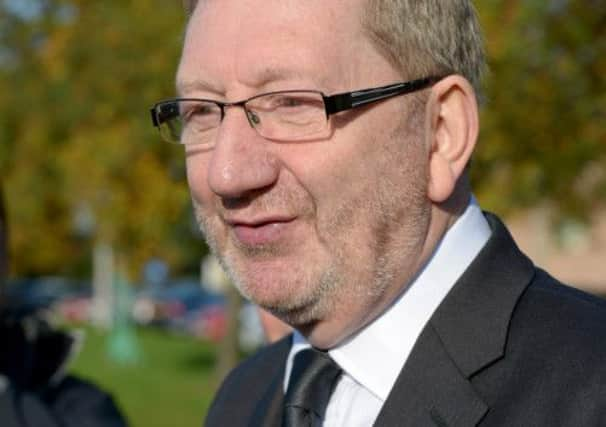Grangemouth: Trade union leaders speak of relief


However, as Unite’s general secretary Len McCluskey met shop stewards and managers at Grangemouth yesterday, his union came under fire for its handling of the crisis.
Critics of Unite’s behaviour attacked the union for a strategy that owed more to the industrial disputes of the 1970s and 1980s than to the modern era.
Advertisement
Hide AdAdvertisement
Hide AdReacting to Ineos’s decision to commit to the plant following the union volte-face, Pat Rafferty, Unite Scottish secretary, said: “This decision is clearly very welcome. Relief will ring right round the Grangemouth community and across Scotland. Hundreds of jobs that would have been lost can now be saved and £300 million will be invested in the plant.
“Grangemouth is the powerhouse of the Scottish economy – it now has a fighting chance of upholding this crucial role into the future.
“Decent men and women are being asked to make sacrifices to hold onto their jobs, but the clear wish of our members is that we work with the company to implement its proposals.
“Unite has worked tirelessly to save Grangemouth because we are totally committed to this plant and its incredible workforce. We will now sit down with Ineos to consult on the company’s proposals.”
However, Jackson Carlaw MSP, deputy leader of the Scottish Conservatives, had a different view on the role played by the union. Mr Carlaw said: “Like everybody else I am relieved that the plant has been saved. But it is unfortunate that so many jobs were put at risk by a union seeking to interact in a way that had echoes of decades past.
“It simply was not appropriate in terms of how the modern world operates.”
Mr Carlaw claimed Unite’s handling of the situation could have cost thousands of jobs.
Of a workforce of 1,350, the union received 665 forms rejecting new terms and conditions that would see the abolition of the final salary pension scheme, a wage freeze and the scrapping of bonuses until 2017.
Advertisement
Hide AdAdvertisement
Hide Ad“Around half those balloted accepted the conditions, and half didn’t. Amongst the half that rejected it I suspect there were people who had been told that they didn’t need to support the offer, because the union would secure them a better deal,” Mr Jackson said.
“That not only imperilled the jobs of people in the plant, but thousands of jobs round about. It was a very close call.”